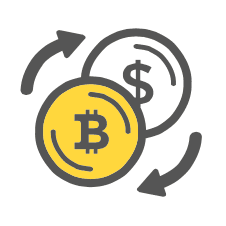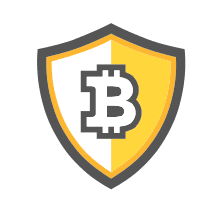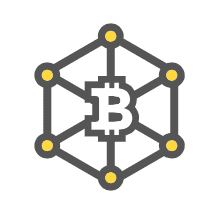How to Avoid Bitcoin Scams
There’s an important difference between Bitcoin transactions and other means of money transmission, such as credit cards, bank transfers or PayPal - Bitcoin payments are irreversible. If you’re cheated, there’s no central authority to refund or reverse your payment. It’s also highly unlikely that authorities will be able to assist, as it’s extremely difficult to establish ownership of a Bitcoin address. You bear full responsibility for managing your bitcoins. Fortunately, a little common sense and knowledge will go a long way to avoiding scams.
Research
A good maxim to keep in mind when considering any proposition is: if it sounds too good to be true, it probably is. Browsing Bitcoin-related forums, sites or social media, you’ll encounter many enticing offers of high investment returns. If a scheme is presented as highly-profitable and low-risk, ask yourself why such a great opportunity is being shared with the public.
Remember, you’re most susceptible to being scammed when you allow desire for easy money to override your logic and caution. Discipline yourself to make decisions only after calm reflection and beware of anyone rushing you or using FoMO tactics to manipulate your emotions.
Check Ratings
Another gem and the reason trust ratings exist: the best indicator of future behavior is past behavior. If someone making an offer has a history of shady dealings (as reflected by their trust rating on BitcoinTalk, LocalBitcoins, the WoT etc.) then be on your guard.
Exercise equal caution when dealing with a newbie with no history, as busted scammers often simply create new accounts and start over. Be aware that there’s also a profitable market in selling old, trusted accounts, particularly on the BitcoinTalk forum.
It’s also possible that someone with a great history may be planning a “long con,” in which they build up a good reputation by behaving honourably – until a large sum is up for grabs. Always balance the value of their good reputation against the money at stake.
And remember, reputational feedback is only as valuable as your knowledge and trust of the provider. Positive ratings from numerous newly-registered accounts may signal a Sybil Attack, whereby a scammer games the rating system by creating shell accounts for the sole purpose of raising their trust profile. So, take the time to build a network of trusted friends and associates whose judgement you can rely upon.
Use Escrow
With these principles in mind, you’re better-armoured against casual scammers. There are also some specific techniques to increase your trading safety when using Bitcoin. The foremost is escrow, whereby buyers don’t send bitcoins directly to sellers but rather to a third party both trust. This third party releases the funds to the seller only when the buyer approves or the seller proves (via shipment tracking) that goods arrived or (via relevant evidence) that work was performed according to spec. While it sounds simple, consider that this technique is sufficiently effective to secure anonymous darknet market deals between outlaws - and it’s hard to think of a more risky trading environment. Provided you thoroughly vet your escrow agent, this technique should allow you to trade safely with just about anyone.
Of course, not all payments can be escrowed. Bitcoin exchange deposits are a good example. Mt. Gox is the most infamous case of a fraudulent exchange, in which 650,000 bitcoins were lost. There were many warning signs before Gox failed and it’s worthwhile to research the entire saga to learn what they were. The more you learn about previous scams, the easier it becomes to recognize the signs. Unless you’re an active trader, a good rule of thumb is to never leave your bitcoins or fiat money on an exchange. Bitcoins outside your personal wallet are bitcoins you don’t own.
Bitcoin Investments and Ponzi Schemes
Bitcoin investments are also virtually impossible to escrow. Before jumping aboard any scheme promising regular payments, learn to recognize the tell-tale signs of a Ponzi scheme, in which payments from new entrants go towards funding older members, at least until the whole rotten swindle collapses. Pirateat40 was the biggest of the Bitcoin Ponzi schemers to date, and reading through his thread will provide insight into the ways of scammers, shills and their victims. Sadly, victims are often the fiercest defenders of such scams, at least until they lose their shirts.
Modern Bitcoin Ponzi schemes are often disguised as cloud mining plans. This thread offers excellent advice on spotting these scams and indeed, Josh Garza’s GAWminers, which was mentioned as highly suspect at the time, turned out to be the biggest and most audacious cloud mining scheme to date.
Initial Public Offerings or Initial Coin Offerings, in which “investors” are invited to buy a share in the future profitability of some new service or altcoin, are also very risky. Unless you have some special insider knowledge (and tips from others certainly don’t count) and money to burn, it’s advisable to wait and allow the market to establish fair value before getting involved.
Altcoins
Speaking of altcoins, avoid throwing money into coins which are experiencing a sudden and dramatic spike in price and volume. Such moves, especially in insignificant coins with otherwise thin volume and flat price action, are usually coordinated pumps and dumps. Chances are, by the time you spot the sudden action and get excited, the pumpers are already looking to cash out. These pumping crews will gladly take advantage of buyer’s FoMO-motivated bid offers to dump their overvalued coins.
Finally, if you decide to sell your Bitcoins privately, avoid certain forms of payment. PayPal is a particularly risky method for sellers. PayPal’s policies invariably favor buyers, who may claim a chargeback on the flimsiest of pretences for up to a year after the trade.
We hope the above advice will save your bitcoins from scammers. When in doubt: research more, exercise patience and caution, use escrow if possible and discuss things with those you know and trust.
Categories















